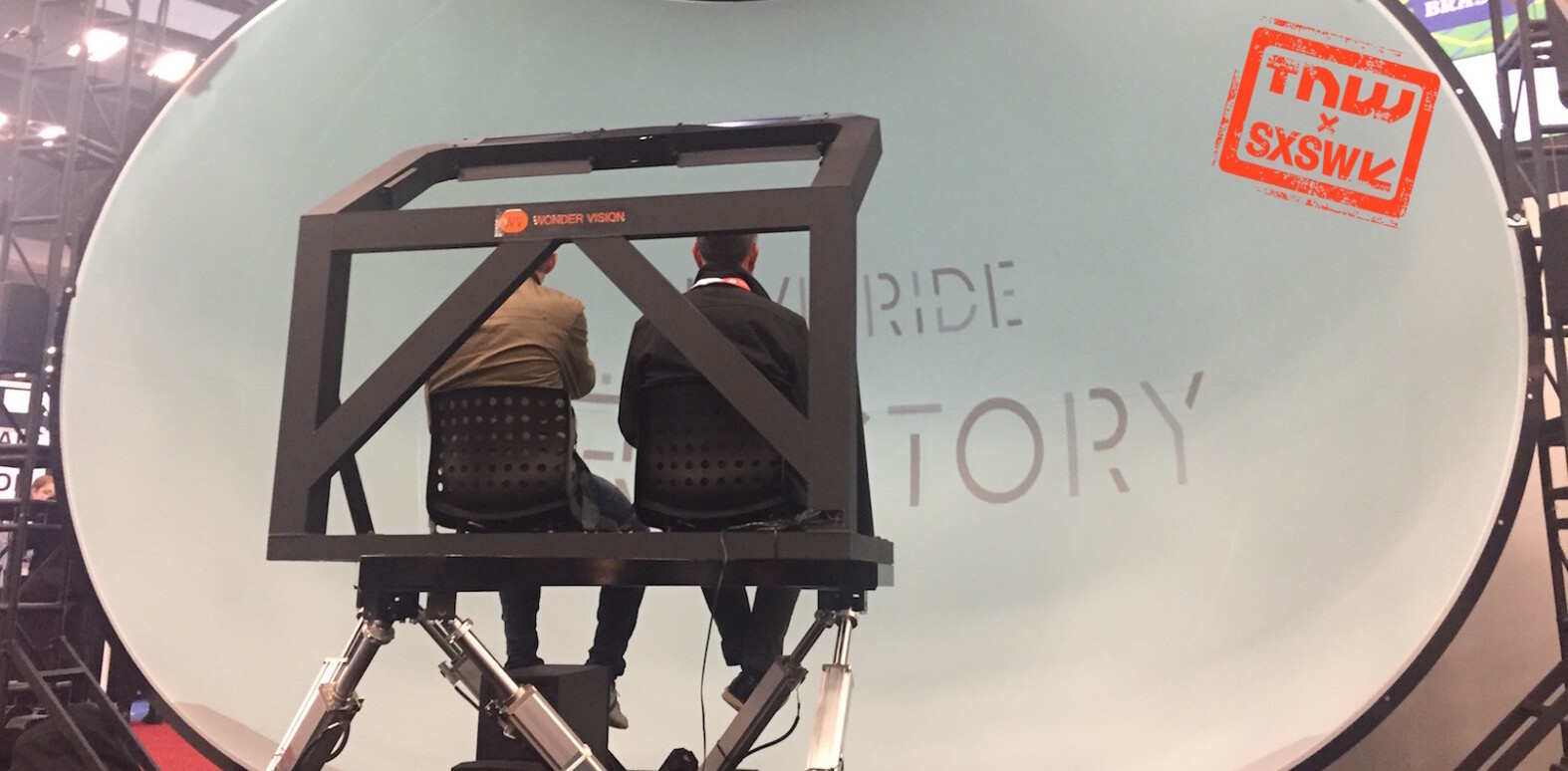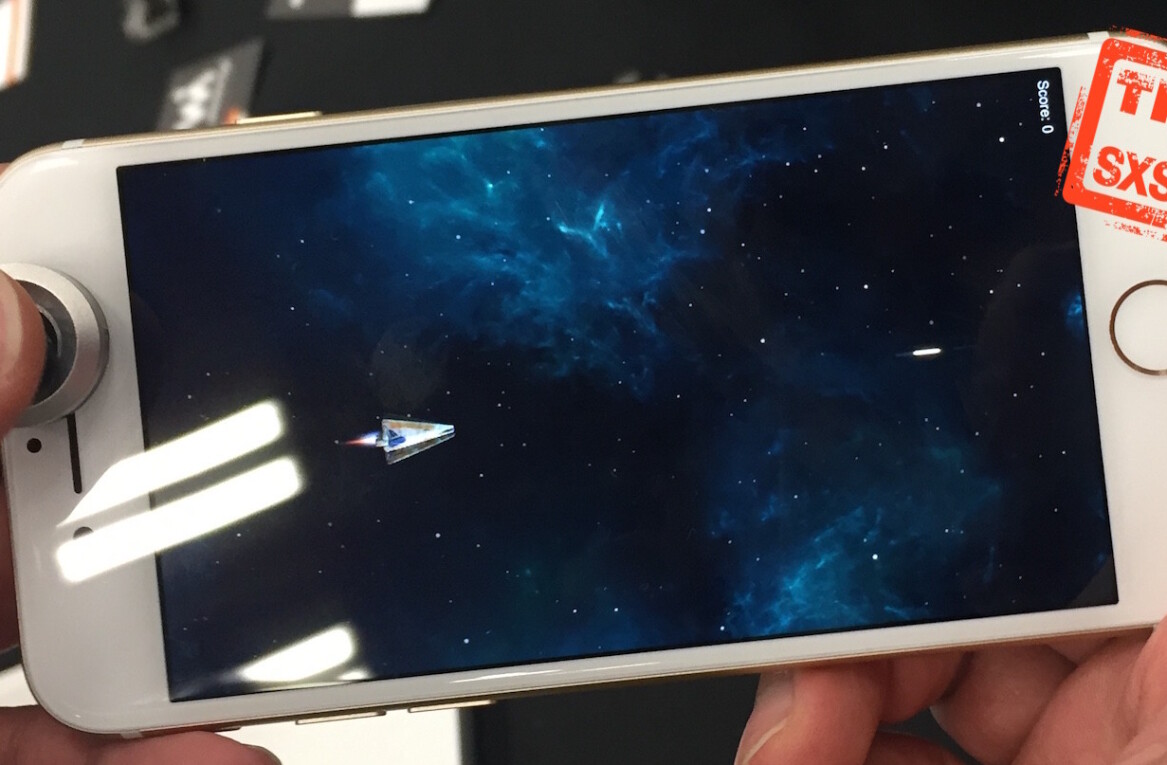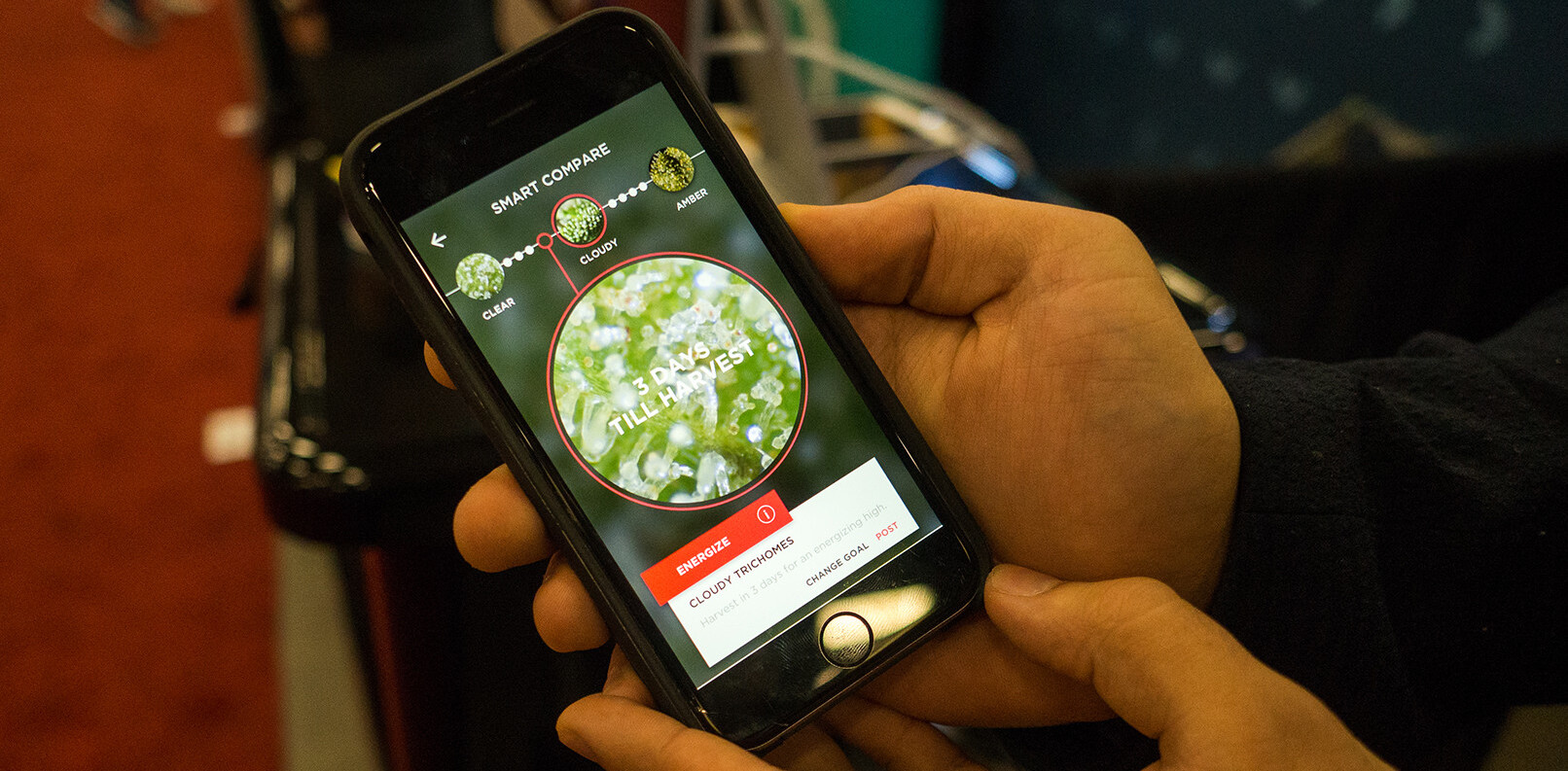
While South by Southwest is a festival that examines a lot of things — new technology, up-and-coming trends and big questions about the future of film, music and technology — rarely do attendees get the opportunity to see a battle that was sparked and largely fought online play out in real life. Yet that very situation happened this year, in a handful of panels discussing the online controversy #Gamergate.
The road to these panels began in October, when SXSW announced the lineup. As one #Gamergate and one #AntiGamergate panel were both approved on the schedule, a fight broke out between those who see the #Gamergate as a harassment group and those who see the opposition as a group of professional victims.
The fighting was about as inside baseball as you could get, but perceived serious threats of violence (including bombings and shootings) led SXSW to cancel two panels directly due to their high risk of violence.
However, as major media companies threatened to pull out of the festival unless the panels were reinstated, SXSW relented and put them back on the program.
SXSW facilitators were prepared to take every action to ensure that violence would not occur; held on different days in a notably isolated Hyatt Regency ballroom that included a mandatory bag check, the air at the events was decidedly more charged than your average SXSW fare. It was clear that no one would be able to escape the subtext of hostility that permeated the space.
And what a fair amount of subtext there was, across several events held over two non-consecutive days. Two panels in particular both had stated goals of providing a wider conversation relating to technology — one on preventing online harassment and another on ethics in gaming journalism — but couldn’t help frequently circling back on the people and practices of the tangled battle that began when a jilted ex-boyfriend wrote a scathing blog post about a female game developer. As a result, both panels required heavy reading between the lines, and lots of it.
The events gave a rare insight into the psychological positions of both sides, and seeing them both in context showed just how thorny, difficult, and immovable both sides have been in mediating the pent-up anger.
Spoiler alert: This is about more than just ethics in gaming journalism.
But First, Online Harassment
Kicking off a special day-long event called the ‘Online Harassment Summit’ was a panel entitled ‘Is A Safer, Saner and Civil Internet Possible?’. It featured game developer and noted #Gamergate target Brianna Wu, who has often spoken in great length and detail about her involvement in the matter and the very grotesque and specific threats she has received from those who claimed to be affiliated with #Gamergate.
“Women in my field had been targeted, bullied and chased out of my industry for months, and the warm pot was boiling and the kitchen was about to catch fire,” Wu explained. “For me, I had a very specific death threat go hyper-viral after someone tweeted it and I found myself under horrendous abuse.”
Wu positioned herself as a first-person target of death threats and online harassment — to the tune of more than 200 — that were often sexually-charged and hyper specific. An anonymous person claimed that he would put a drill through her skull and it would be the last thing she would ever see. Another showed up at her college, impersonating her and attempting to gain access to her private college records.
“We’re not talking about people saying ‘You suck!’ on the Internet,” she said. “It’s more serious than that.”
Wu’s first-person experiences were complemented by women with three very different views and specialties in tracking online harassment, with part of the panel focused on other tactics used on the wider Internet.
Although Shireen Mitchell, founder of Digital Sisters, openly cited #Gamergate as a harasser in the road to attending SXSW, her portion of the panel particularly focused on the tactics of harassing women of color online. Professor of the University of Miami School of Law Mary Anne Franks spoke candidly about the difficulty of tracking and stopping revenge porn (which Franks refers to as ‘non-consensual pornography’) from a legal perspective. And Elisa Lees Muñoz, Executive Director of IMWF, spoke about the impact of harassment particularly on women in the media, from an international perspective.
All four women brought specific instances of the harassment they felt was particularly damaging to women, both personally and professionally. Mitchell displayed screenshots of anonymous, racially-charged messages on the popular anonymous mobile site Yik Yak taken from a college student — messages that threatened to ‘grape’ women of color in the mouth (a clever way to get past YikYak’s abuse flagging system).
Franks recounted the story of Rentaeh Parsons, a high school student who committed suicide after photos of her alleged gang rape were found online. Muñoz detailed the survey evidence her group had collected from female journalists around the world, and the online tactics used to silence their work. Different in their content, all the forms of harassment had similar strategies.

“The way to destroy a woman is to reveal the fact that she’s ever been naked,” Franks said succinctly.
But as Wu’s experience derives specifically from #Gamergate, the topic was never far from top-of-mind. She spoke highly critically of Reddit in particular, where her college records ended up getting distributed online as well as other personal information, as “failing women in every marginalized community spectacularly.”
She also expressed frustration at the lack of tools to combat online harassment, particularly in blocking, reporting, and producing material consequences for those who targeted her online.
The women discussed specific measures to alleviate those stressors — particularly through legal action for revenge porn — but all agreed that voices of minorities that are harassed should continue to be heard.
“The concept is either that we deserved it or we’re not deserving of being protected,” Mitchell explained. “And that’s the narrative that keeps getting removed.”
Talking Around the (Save)Point
The #Gamergate-affiliated second panel ‘SavePoint: A Discussion on the Gaming Community’ took place as a solo event days later in the same hotel, and had a different approach in discussing its side of things. One noticeable detail was that both attendants in the crowd and participants on the panel openly assumed that the media was not present at all for the event, perhaps an iteration of a narrative within the movement that journalists neither listen nor ask of their time.

“No one reaches out to talk about stuff because giving reasonable answers doesn’t generate clicks,” Nick Robalik, developer at PixelMetal, would later say.
If the first panel appeared confusing to an outsider in the #Gamergate issue, the second one spoke in an even deeper coded language. These pre-formed assumptions — about media attendance, media bias, the falsehood of accounts like Wu’s, and the collusion between those on the other side and the media — were not explicitly explored yet weaved through practically every question asked within the hour.
Moderator Perry Jones, who runs a group entitled the Open Gaming Society, began with a nod to the divide between previous panels. He didn’t delve into details, but he did mention that scheduled panelist Mercedes Carrera was ultimately not allowed to attend due to an online spat with another #AntiGamergate figure, Randi Lee Harper, who ran a panel during the Online Harassment Summit titled ‘Level Up: Overcoming Harassment in Games.’
Jones asked SPJ President-Elect Lynn Walsh to respond directly to Mitchell’s charge that SavePoint’s panel was made up of harassers.
“I would say first: I am not a harasser,” she said. “I don’t consider myself that. I think people who know me know that.”
A portion of the panel was devoted to cataloguing and dissecting journalistic practices, with Walsh acting as the expert in place to help characterize how the media obtains, vets and sources stories. However, Jones’s frequent allusions to “unethical practices” and the need to “politicize topics” within publications, digital media and blogs were not met with any specific examples. No news article nor professional journalist was named as a “bad actor” within the journalism community, and Walsh herself was the first to admit that she didn’t know much about games journalism or its perceived woes.

One of the biggest narratives #Gamergate’s detractors levy against it is that it purports to be about ethics in journalism, but rarely does it find material indication that malfeasance or outright unethical behavior took place and resulted in substantial consequences.
One known website documenting these cases, DeepFreeze, catalogues some of the common practices of journalists its group believes violates ethics. These include, for example, a writer covering a game by a developer that the writer has contributed to via a crowdfunding campaign, or exchanging friendly tweets with a game dev for a company that makes games that were covered or reviewed either before or after the exchange took place.
But none of these cases were used as concrete evidence, nor explored in depth with Walsh’s expertise — despite the opportunity to do so.
“Any time you’re writing online and you’re publishing online, you have to be ethical,” she generalized. “Publish accurately, fairly and ethically.”
Most of the criticism was hurled at Anita Sarkeesian, feminist media critic who is known for her series ‘Tropes Against Women in Gaming’ and for running the website Feminist Frequency. Both Jones and Robalik spoke of her clear and open bias, but Sarkeesian is not technically a journalist; Feminist Frequency is a recognized 501(c)3 non-profit that conducts independent media research outside of the news cycle.

Another key point in the discussion was the rights and obligations of private social media platforms like Twitter to regulate or provide tools to moderate the language on their sites. Robalik in particular bristled at the idea that platforms should be responsible for the language that happens on the internet, which he perceived as protecting “anybody else’s feelings.”
“I fear for the future where an emotional instability of others would force us to censor ourselves,” Robalik said. “[Censor is] not the right word, but you know what I mean.”
For her part, Walsh thoroughly explained the process of news gathering, particularly encouraging those who believe that a journalist hasn’t written the whole story to reach out civilly and offer to be a source for the other side. Although the panel wasn’t direct about which types of stories ran afoul of journalistic ethics, Walsh did a good job separating the right of the press to have a free stated opinion versus covering the facts of a news story. She also included that even the best journalists make mistakes.
“It is unfortunate because I do agree with you: a good journalist — a genuine journalist — isn’t trying to make a story that’s untrue,” she said. “Sometimes, even when we try our best, we get it wrong.”
One noteworthy question in the audience came from a man who was eager to reconcile the concept of free speech with the kind of “politicized” language Jones, Walsh and Robalik tried to dissect on the panel. If those like Sarkeesian are going to speak their opinion, shouldn’t they be allowed to do so under free speech?
“People are allowed to lie, sure,” Robalik said.
#Gamergate Under a Microscope
So, what did the two panels teach us?
From a superficial equation, it seems clear: Sustained online harassment is bad; continued journalistic diligence is good.
But the panels weren’t there to state the obvious — rather, it played out like a delayed dialogue between two sides who have long given up talking to each other and instead have resorted talking past each other, to an imaginary (and perhaps non-existent) third party, in order to resolve problems.
For one, both Wu and Robalik spoke individually at their panels that diversity in the gaming industry was a welcome and valuable thing. However, the different tactics they believe it will take to get there and the deep fissure between what each thinks is the “right” call — purposefully elevating diverse voices in games versus letting the community make its own choices — doesn’t leave the casual observer much hope for a compromise.
There’s also a distinct divide in evaluating the impact of online harassment and its role in silencing others. Although the first panel frequently discussed the sustained attacks, hacking, and doxxing they have received personally or collected from a data perspective, the second dismissed the impact of harassment as merely mean words online.
Perhaps even greater, #Gamergate panelists believe there’s a deeper conspiracy at work that the media favors “harassment stories” — a self-formed narrative that automatically discounts the “ethical value” of stories relating to the issue if there’s perceived sympathy for victims of harassment. They are deemed “clickbait.”
But despite the heated topics, it is worth nothing that, anecdotally, the turn-out for either panel wasn’t that strong. A Twitter account called @GamerGateTweets made a specific point to comment that the attendance for the SavePoint panel was stronger “than at all the harassment panels put together,” but followed up with a side-by-side of SavePoint and the turn-out of the panel run by Harper:
@TheUnhelpfulNPC They exist already. Left: SJW full swing Right: Start of Save Point pic.twitter.com/GpZxsM0oQx
— #GamerGate (@GamerGateTweets) March 16, 2016
However, as SXSW doesn’t disclose attendance at individual panels, this claim — specifically referred to as a “victory” for #Gamergate — is unsubstantiated.
Overall, compared to other panels held in closer proximity to the action and on other topics that had festival-goers locked out of the room or scrambling for floor-space, both panels were noteworthy for their lack of interest from the wider SXSW audience. The naked eye could observe many empty seats.
This phenomenon may or may not be a representative of the #Gamergate experience right now: to an absolute outsider, it is likely of little additional educational or cultural value. But to those who have either wrapped themselves in the cause or been sucked into it, it still means a great deal from a physical, personal and emotional perspective.
And given the passion from both sides, even in a civil arena like SXSW, it’s hard to believe it will dissipate anytime soon.
Disclosure: For the sake of clarity, I had neither met nor spoken with any panelist in a personal or professional setting before the days of their panel, though I have colleagues who have — including some who have been actively targeted by those purporting to be affiliated with #Gamergate.
Get the TNW newsletter
Get the most important tech news in your inbox each week.




